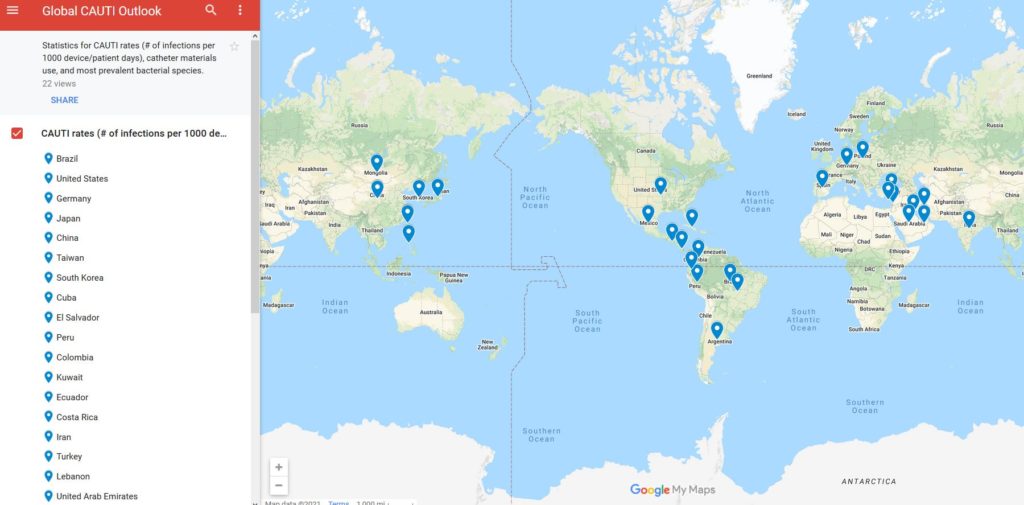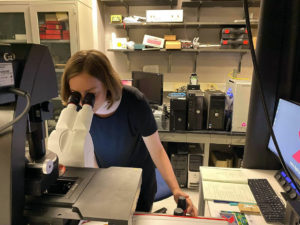Global Surveillance of Catheter Associated Urinary Tract Infections
Sarah Beth Gleeson
August 2021
Summary
Biofilms are largely responsible for hospital acquired infections. Understanding the scope and importance of biofilm’s influence on hospital acquired infections will motivate research that investigates how to prevent or eliminate biofilm formation in healthcare settings. As such, “Global Surveillance of Catheter Associated Urinary Tract Infections” covers a basic understanding of biofilms, how they lead to catheter associated urinary tract infections, the magnitude and global importance of the problem, and how researchers are attempting to address the issue.
Videos and Map
This Global Context Project, a video series and interactive map, highlights the context and importance of global surveillance of catheter associated urinary tract infections for those interested in global health. The project’s goals include informing the audience about:
- How biofilms cause catheter associated urinary tract infections (CAUTIs)
- Why collecting global CAUTI rate data is important for global health
- How CAUTI data is collected and where there are data collection pitfalls
- How researchers are attempting to reduce CAUTI rates worldwide
The project is designed to spur research and data collection in the realm of biofilm related bacterial infection and introduce the audience to biofilm prevention and breakdown strategies.
The Threats and Challenge of Biofilms – by S.B. Gleeson
Global Surveillance of Catheter Associated Urinary Tract Infections – by S.B. Gleeson
If you are able to access Google My Maps, you can view the interactive map. The CAUTI rate data shown on this map can also be viewed in Table Form.

Engineering Solutions and Clinical Interventions – by S.B. Gleeson
Bio
Sarah Beth Gleeson is a senior studying Materials Science and Engineering at University of Pennsylvania. Outside of her studies, Sarah Beth is the Artistic Director of Penn Ballet, acts as Chair of Programs for Religious, Interfaith, and Spiritual Matters (PRISM) board, and is a Resident Advisor at Kings Court English College House. She has an affection for blueberries and Jacob Collier’s music and wants to learn more about microbes, biopolymers, and 3D printing.
References & Acknowledgements
References
Acknowledgements
Thank you to Katie Rose, Dr. Composto, and the Composto Group for your help and kindness. Kristin Field, thank you for creating such an engaging summer research experience. Thank you to the Singh and REACT REU students and mentors for your feedback and support. This work was supported by National Science Foundation Partnerships in International Research and Education funding (Award # 1545884).

